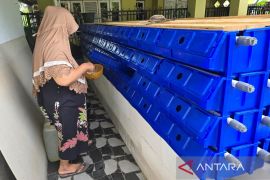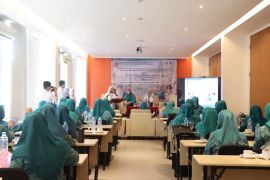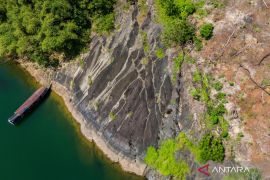Banjarmasin, South Kalimantan (AntaranewsKalsel) - South Kalimantan Quarantine released hundreds of crabs and small crab (rajungan) from the results of a joint team raid on cargo terminal Syamsudin Noor Airport Banjarmasin.
Investigator of Quarantine and Quality Control Safety of Fishery (KIMP) Class II Banjarmasin Ichi Langlang Buana Machmud here on Thursday said hundreds of crabs released were laying crabs.
According to him, the rescue efforts and conservation of marine waters resource in South Kalimantan continue.
The shipment of hundreds of laying eggs crabs was successfully thwarted at Syamsudin Noor Airport before delivery to Jakarta and Batam.
Ichi revealed the joint team of quarantine, police and air base Syamsuddin Noor Airport managed to thwart the shipment for violating the rules of the Minister of Marine and Fisheries No. 1/Candy-KP/2015 about catching lobsters, crabs and small crab.
Crab (kepiting) and small crab (rajungan) seized to be sent considered not eligible to be traded, because their size were still below the standards size.
According to Ichi, crabs should be traded if it has reached the weight above 200 grams, small crab weighing over 55 grams, soft-shelled crabs (soka) over 150 grams.
In the raid the team secured 200 crabs ready to lay eggs, 120 crabs under the measure, and 1,700 small crabs. All were from Kotabaru, Batulicin, and Aluh Aluh, Banjar.
Of the thousands of catches, he added, only 176 laying crabs survived and released to wild in Kaget Island, at the mouth of Barito River, while the rest were destroyed because of the death.
Since the issuance of the regulations of the Minister of Marine and Fisheries in January 2015 up to now 42 cases of violations have been found, and 17 cases have been processed.
Now the perpetrators charged under law number 16 of 1992, article 31 of the quarantine, with the threat of imprisonment of three years and a fine of Rp150 million.
edited by mahdani







